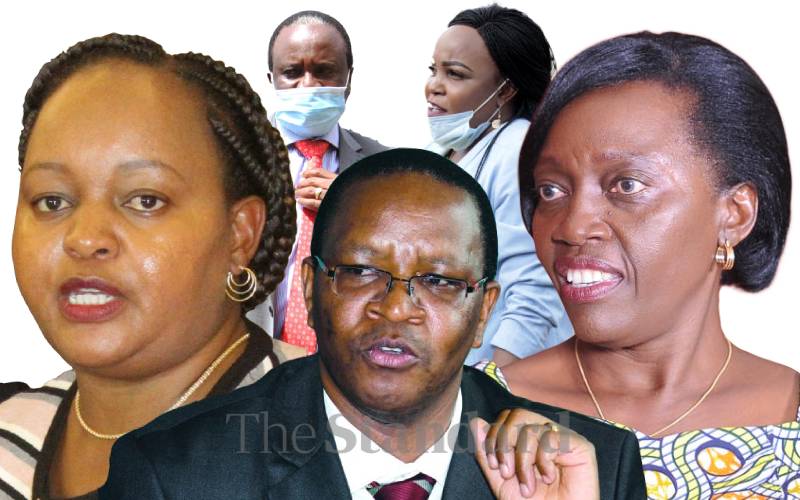×
The Standard e-Paper
Stay Informed, Even Offline

From left, Anne Waiguru (governor), Karanja Kibicho (PS), Martha Karua (party leader), Wangui Ngirichi (woman rep) and Charles Kibiru (senator). [File, Standard]
Few counties in Kenya have captured as much public attention as Kirinyaga, geographically surrounded by Murang’a, Embu, and Nyeri with a bit of Machakos squeezed at the Murang’a-Kirinyaga border.